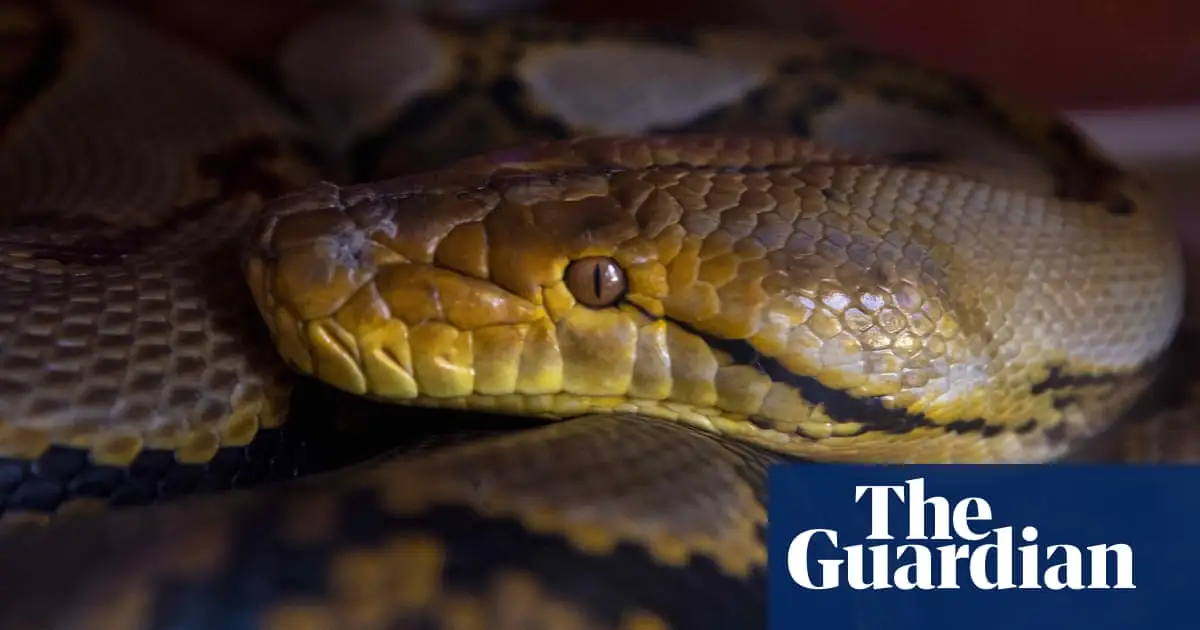"A paper co-authored by the researchers found the commercial farming of these reptiles could offer a sustainable alternative to conventional livestock in places like southern Africa amid the challenges of food security and climate change.
Stock would be hatched from eggs laid at farms, not wild caught, with candidate species including the Burmese python, reticulated python and the southern African rock python.
“These pythons can live for almost a month with no water. They can live off the water that sets on their scales in the morning. They can go for almost a year without eating,” Natusch said.
“We’re not necessarily saying everyone should stop eating beef and turn to pythons but there needs to be a conversation about them having a more prominent place in the agricultural mix.”
“These pythons can live for almost a month with no water. They can live off the water that sets on their scales in the morning. They can go for almost a year without eating,” Natusch said.
How is this relevant if the goal is to raise and kill them. You would not want to stagger their growth.
It never cease to amaze me seeing all the ways people try to not go plant based.
This would probably be a good idea in Florida as well
Now I’m wondering if this is the deal for all cold-blooded animals like crocodiles…
Jeg antager der er en del skyggesider ved pythonopdræt, som endnu ikke er belyst og, at det uden tvivl ville være bedre for planeten og atmosfæren hvis alle bare bleve vegetarer som minimum, men pythoner lyder lige umiddelbart som en bedre kilde til kød, end mange af de nuværende.
Slangekød er så vidt jeg husker dog temmelig delikat. Det er meget nemt at udtørre kødet under tilberedning, men det jeg fik var faktisk ganske udmærket.
PS. Det ser ud som om engelske opslag lokker brugere fra andre instanser til, så måske skal vi gøre lidt mere af det :p
Jeg har også smagt slangekød en enkel gang, men tilberedte det ikke selv, så kan ikke udtale mig om hvor delikat det er, og jeg kan ikke huske hvilken slange det var. Det smagte af kylling, den er god nok. Men ellers er jeg vist ikke til megen brug her :)
Seems weird to me since I always assume you want to get closer to plants in the food chain for economical meat. But I guess the fact that they are cold blooded makes up for that…
A huge part of it is probably also that they aren’t known for having methane farts.
I wonder how their pray animals stack up in that department.
This is the best summary I could come up with:
But to try it, you’d likely have to fly somewhere like Thailand or Vietnam where Natusch and Botswana-based ecologist, Dr Patrick Aust, have worked monitoring commercial python farms.
A paper co-authored by the researchers found the commercial farming of these reptiles could offer a sustainable alternative to conventional livestock in places like southern Africa amid the challenges of food security and climate change.
“We’re not necessarily saying everyone should stop eating beef and turn to pythons but there needs to be a conversation about them having a more prominent place in the agricultural mix.”
This is because, according to the researchers, reptiles require less water, produce fewer greenhouse gases, are more resilient to extreme climatic conditions and don’t transmit diseases like bird flu or Covid-19.
Natusch lives in Cairns in far north Queensland where crocodile meat is readily available, but he thinks Australians might not be ready to eat python just yet.
But Lin Schwarzkopf, head of zoology and ecology at James Cook University, said a much closer examination of all the facets of growing pythons was needed before deciding whether we should eat the reptile.
The original article contains 675 words, the summary contains 186 words. Saved 72%. I’m a bot and I’m open source!



